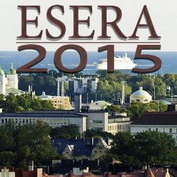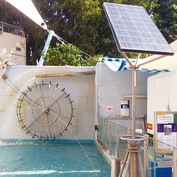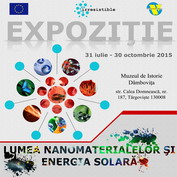- Details
- Written by Sevil Akaygün, Bogazici University
Project Irresistible was presented at 11th Conference of the European Science Education Research Association (ESERA), in Helsinki, Finland, between August 29th - September 4th, 2015. Two symposia, poster and paper, were conducted on two different days. Each symposium started with a brief introduction of the Project Irresistible.
Read more: irresistible present at ESERA conference in Helsinki
- Details
- Written by Ron Blonder and Sherman Rosenfeld, Weizmann Institute of Science, Israel
How can a publically-funded curriculum development project, which produces a successful curriculum unit, sustain its use after the funding ends?
- Details
The first blog-post about teachers’ attitudes related to RRI teaching dealt with results in IRRESISTIBLE’s first round. Even though the model could identify four different profile types, most teachers (58%) fell in the category of a ‘co-operator’. This means that teachers are willing to work and collaborate about RRI teaching but are not overly excited about it. However, this result is not entirely satisfactory because there was a possibility that the questionnaire did not differentiate teachers in a realistic way. This suspicion rose partly from the observation that many of the questionnaire items had a ceiling effect and some items had high ‘I cannot say’-percentages. There were also many other ideas on how to improve the questionnaire.
Read more: developing the model for understanding teachers’ concern profiles
- Details
- Written by Gabriel Gorghiu, Valahia University Targoviste
The post-modern society claims uncompromisingly the necessity to complement formal education with the informal and non-formal one, by initiating and conducting trans- and inter-disciplinary education and extra-curricular activities, in various forms. In this context, non-formal education is reflected as an essential component of lifelong learning that capitalizes educational partnerships with the view to develop students’ competences and skills, more oriented on understanding the real world and involving practical settings.
Read more: “the world of nanomaterials and solar energy” - an exhibition in the city of târgovişte
- Details
- Written by Rita Marques, Universidade de Lisboa
Research shows that a visitors’ experience in a museum is greatly influenced and shaped by the social interaction and dialogue developed between visitors (vom Lehn et al, 2001; Crowley, 2000; Leinhardt et al, 2002). In addition, it has been shown that learning and cognitive development are supported when the participants engage in lasting activities with artefacts, and when they are engaged in social interactions and discussions with other participants (Heath, vom Lehn & Osborne, 2005).











